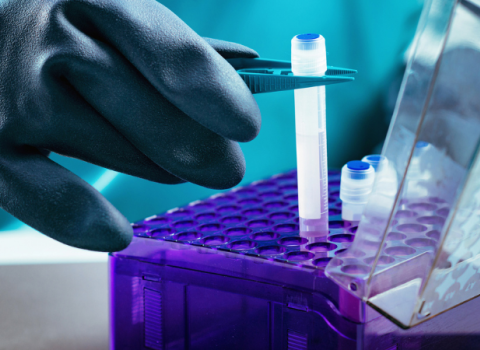UCL Business (UCLB), a wholly owned subsidiary of University College London (UCL), and BD (Becton, Dickinson and Company), a leading global medical technology company, announced today an agreement aimed at improving the early detection of ovarian and breast cancers to ultimately enable earlier and more effective treatment.
“This agreement demonstrates how UCL and the Institute for Women’s Health have become an international center of excellence for research, clinical care and training in the areas of women’s health and cancer,” said Professor Ian Jacobs, Dean of the UCL Faculty of Biomedical Science. “We are delighted by our collaboration with BD and proud that our track record of excellence in cancer research, including laboratory science and major studies, such as the UK Collaborative Trial of Ovarian Cancer Screening (UKCTOCS), will aid in the research and development of new, more powerful diagnostics for ovarian and breast cancer.”
The agreement negotiated by UCLB grants BD exclusive access to UCL’s world-class “biobanks,” containing more than 200,000 human patient samples collected over multiple years in prospective screening clinical trials for the detection and management of epithelial ovarian cancer. BD will use these samples to develop and validate new biomarker assays. Financial terms were not disclosed.
“The key to defeating ovarian and breast cancers is detecting the diseases early and managing them effectively. This hinges on diagnostic tests that provide clinicians with timely and accurate information,” said Wayne Brinster, Vice President and General Manager, Women’s Health and Cancer, BD Diagnostics. “To develop new tests, you need to first validate them against a robust set of samples that very few institutions possess to assure the test is performing as planned. The ability to access UCL’s samples and work with its leading researchers represents a major step toward BD’s goal of developing and commercializing tests that significantly improve the detection and management of these deadly cancers.”
“Our goal for this collaboration with BD is to enable a number of diagnostics to be developed sooner that benefit many who currently suffer from these life-threatening conditions,” said Cengiz Tarhan, Managing Director of UCLB.
Ovarian and breast cancer are among the two most deadly cancers for women. Breast cancer is the second leading cause of cancer death in women today, after lung cancer. It also is the most common cancer among women, excluding non-melanoma skin cancers. According to 2007 American Cancer Society statistics (the most recent available), about 1.3 million new cases of breast cancer among women were expected to be diagnosed annually worldwide and about 465,000 were projected to die from the disease.
In the case of ovarian cancer, more than 204,000 cases are diagnosed worldwide each year, and an estimated 125,000 women die from the disease annually. In the United Kingdom and United States ovarian cancer is the fourth and fifth leading cause of cancer death among women respectively. If diagnosed while the cancer is still confined to the ovary, the 5-year survival rate is more than 90 percent. However, less than 20 percent of all cases are diagnosed at this localized stage.





 A unique international forum for public research organisations and companies to connect their external engagement with strategic interests around their R&D system.
A unique international forum for public research organisations and companies to connect their external engagement with strategic interests around their R&D system.